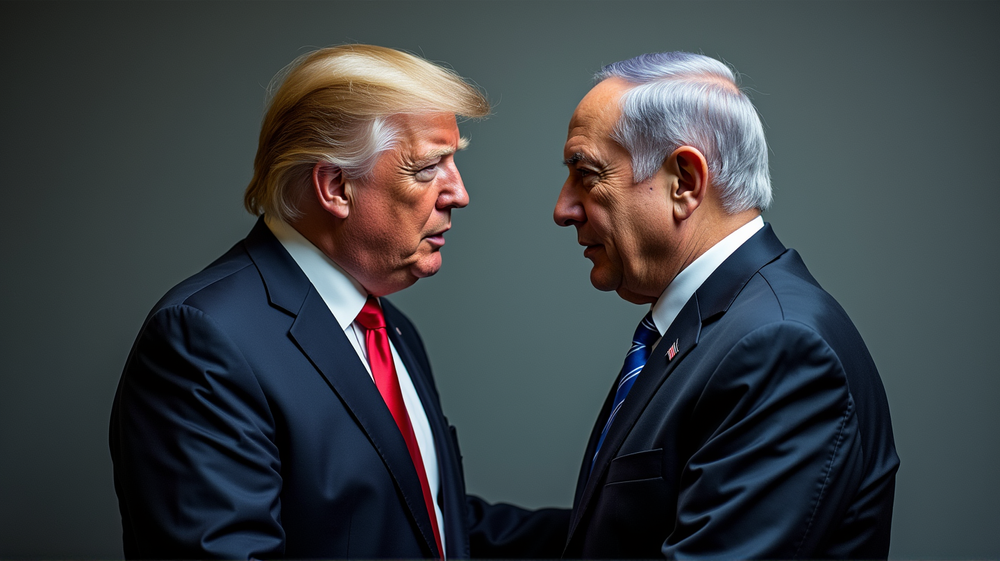Lately, the simmering tension between US President Donald Trump and Israeli Prime Minister Benjamin Netanyahu has reached new heights as reported by close insiders. According to various sources, Trump’s frustration over Netanyahu’s perceived pressures for aggressive military action against Iran, coupled with the delays in Israel’s decisions regarding diplomatic moves in the Middle East, has led to a significant diplomatic rift.
Rising Frustration and Lost Patience
The once strong ties between Trump and Netanyahu now appear to be fraying. As revealed by insiders within President Trump’s inner circle, the US leader is moving forward with Middle East initiatives, prioritizing American interests, seemingly without waiting on Israel’s decisions. These ventures primarily include fostering relations with Saudi Arabia and other Gulf states, areas where Israel was initially expected to participate.
Normalization Setbacks and Policy Disappointments
At the heart of this diplomatic cold front is the process of normalization with Saudi Arabia, which expects a resolution to the ongoing conflict in Gaza and a commitment from Israel towards the creation of a Palestinian state. Yet with internal political roadblocks and public opposition complicating these aspirations, Netanyahu’s inability to decisively act has put him at odds with Trump’s pacing and expectations.
Allegations of Military Coercion and Strategic Exclusion
Troubling allegations have emerged suggesting an attempt by Netanyahu and his advisors to pressure former National Security Advisor Mike Waltz into provoking military action against Iran. Despite Netanyahu’s claims of minimal contact, Trump’s trust seems shaken, resulting in Israel being notably excluded from significant announcements involving ceasefires and regional political changes.
A Pivot Towards Self-reliance for Israel
With Trump charting a course independent of Israeli coordination, Israeli leaders like Netanyahu and Defense Minister Israel Katz seem to be shifting focus towards self-reliance. Their recent statements underscore a readiness to face threats independently, reiterating the nation’s capacity to protect itself without relying on external forces. As outlined by Netanyahu, “the rule I have established is that Israel will defend itself by its own forces.”
In such a volatile climate of international diplomacy, the once-unshakable partnership between these two leaders hangs by a thread, influencing the broader political dynamics in the Middle East. According to www.israelhayom.com, these developments reflect a broader trend of strategic realignment in the region.












